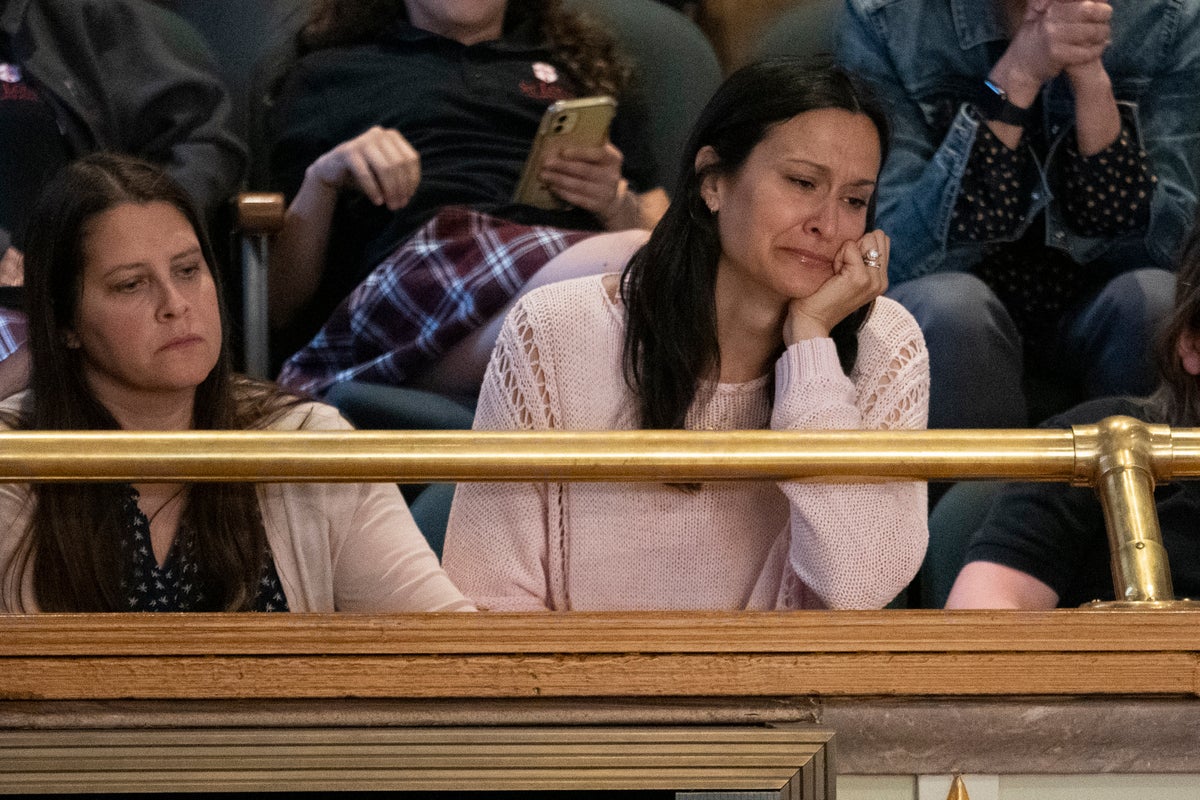
Tennessee's Republican-led Legislature appeared poised to finish their annual session on Friday without taking action on a gun-control plan offered by the GOP governor in the wake of a deadly school shooting.
House Speaker Cameron Sexton said he expects the governor will reconvene lawmakers for a gun policy-related special session. It’s unclear when or what kind of changes would be considered.
“I think we owe it to Tennesseans to actually have conversations with all sides of the public conversation before we ever get to proposed legislation,” Sexton said at a committee meeting Friday.
Republican lawmakers instead squared their focus on putting final touches on bills that range from restrictions on Nashville’s local powers, to an expansion of school vouchers, to more laws targeting the transgender community. They did not bring up a vote on Gov. Bill Lee’s “temporary mental health order of protection” proposal, which aims to keep guns away from people who could harm themselves or others.
House Democratic Caucus Chairman John Ray Clemmons has said he appreciates the governor's proposal but called the reform plan “watered down.”
The shooting at The Covenant School in Nashville killed three 9-year-olds and three adults on March 27. Two young Black Democratic representatives were later expelled from office for protesting in favor of gun control on the House floor. They've since been reinstated.
Although not required to finish the legislative session by Friday, GOP lawmakers moved quickly to conclude amid sustained public pressure for more restrictions on firearms, as well as heightened scrutiny after expelling the lawmakers, which gave the pair a national spotlight amid the country's heated debate over gun rights.
The expulsions drew renewed criticism this week when it was revealed that an ethics panel found in late March that a Republican lawmaker, Scotty Campbell, violated the Legislature's workplace discrimination and harassment policy. Heremained in office and voted to expel the two lawmakers.
Campbell resigned Thursday, hours after WTVF-TV asked him about the ethics finding. He told the Nashville TV station it was about “consensual, adult conversations with two adults off property” and that he would record any possible future conversations with interns.
The Tomahawk newspaper on Thursday quoted Campbell apologizing "to my family, my friends, and those who misunderstood my intentions.”
Amid the ongoing tumult, Republicans finalized their agenda items that included legislation targeting Nashville after its metro council rejected a push for the city to host the 2024 Republican National Convention.
One bill would gut Nashville’s voter-approved Community Oversight Board of the local police department. The measure replaces such boards with review committees that have no power to investigate misconduct allegations.
Another bill would shift the locally selected board of Nashville's airport to state political appointees. A third would let state officials pick six of the 13 members on a board that oversees Nashville's professional sports facilities. A law this year to cut the city council from 40 to 20 seats has already been temporarily blocked. Opponents of the other legislation suggested it likely faces costly litigation as well.
“This war on Nashville is going to be hurtful to all of us,” said Sen. Heidi Campbell, a Nashville Democrat.
Republicans also finished a bill that would protect teachers who don’t want to use a transgender student’s preferred pronouns. A different bill would define male and female in state law and base people’s legal gender identities on their gender assigned at birth, preventing transgender people from changing their driver’s licenses or birth certificates.
A legislative fiscal review found Tennessee risks losing about $2 billion in funding from Washington under those bills due to conflicts with federal rules.
A court already blocked a new law that restricts where certain drag shows can take place. A ban that passed this year on gender-affirming care for minors is facing a lawsuit.
Legislators also worked out how to expand Tennessee's low-income school voucher program, choosing to add Hamilton County, which includes Chattanooga. The program is currently available in Nashville and Memphis.







